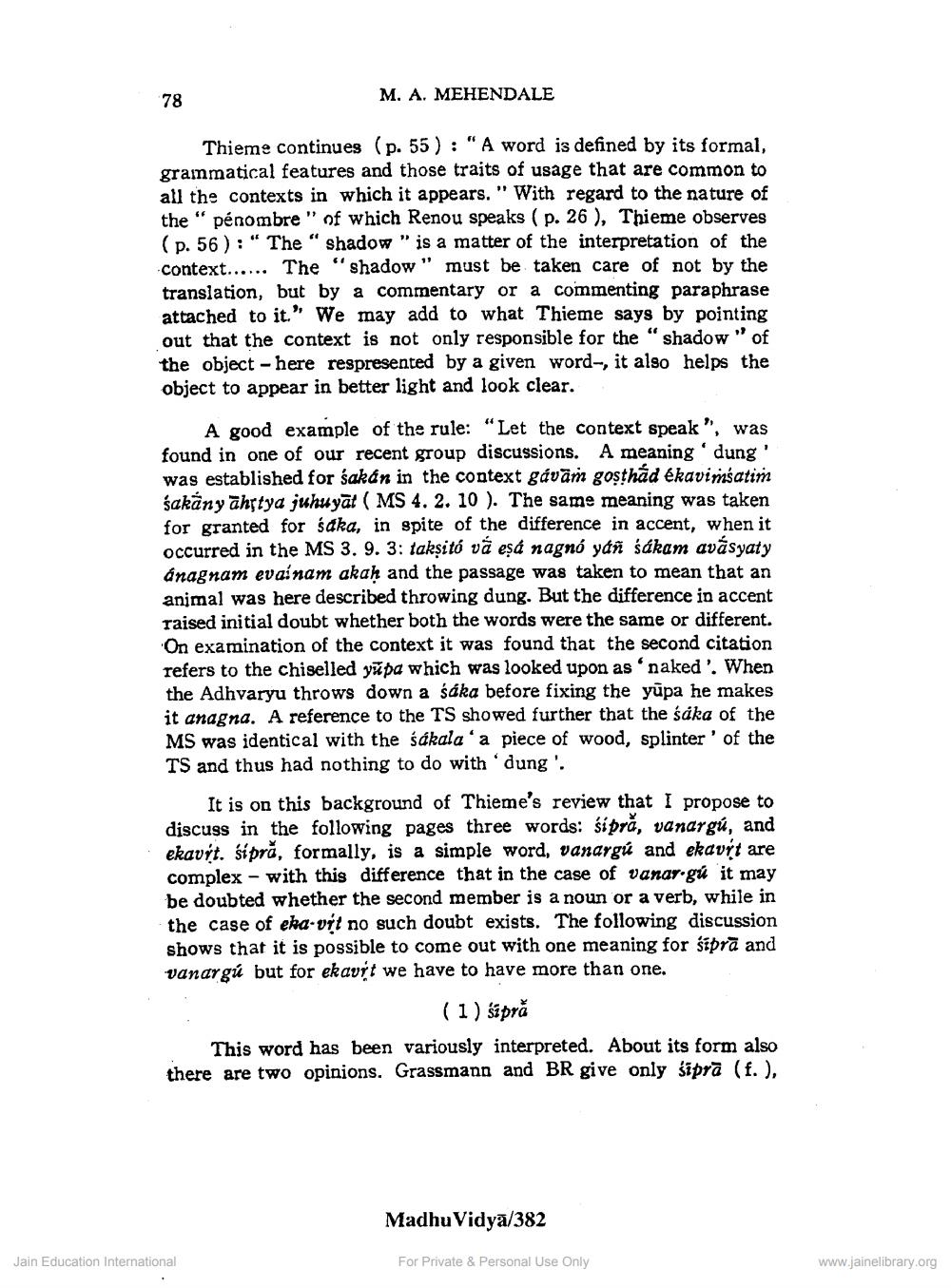________________
78
M. A. MEHENDALE
Thieme continues (p. 55): "A word is defined by its formal, grammatical features and those traits of usage that are common to all the contexts in which it appears." With regard to the nature of the " pénombre" of which Renou speaks (p. 26), Thieme observes (p. 56): "The " shadow " is a matter of the interpretation of the context...... The "shadow " must be taken care of not by the translation, but by a commentary or a commenting paraphrase attached to it.” We may add to what Thieme says by pointing out that the context is not only responsible for the “shadow" of the object - here respresented by a given word, it also helps the object to appear in better light and look clear.
A good example of the rule: "Let the context speak", was found in one of our recent group discussions. A meaning' dung' was established for sakán in the context gávām gosthád ékavimśatim šakány ahstya juhuyāt ( MS 4. 2. 10). The same meaning was taken for granted for saka, in spite of the difference in accent, when it occurred in the MS 3. 9. 3: taksitó vă eşá nagnó yán śákam avásyaty ánagnam evainam akaḥ and the passage was taken to mean that an animal was here described throwing dung. But the difference in accent raised initial doubt whether both the words were the same or different. On examination of the context it was found that the second citation refers to the chiselled yãpa which was looked upon as 'naked'. When the Adhvaryu throws down a śáka before fixing the yüpa he makes it anagna. A reference to the TS showed further that the śáka of the MS was identical with the śákala' a piece of wood, splinter of the TS and thus had nothing to do with 'dung'.
It is on this background of Thieme's review that I propose to discuss in the following pages three words: sípra, vanargú, and ekavit. sipra, formally, is a simple word, vanargú and ekavýt are complex - with this difference that in the case of vanar.gú it may be doubted whether the second member is a noun or a verb, while in the case of eka-výt no such doubt exists. The following discussion shows that it is possible to come out with one meaning for sípra and vanargú but for ekavrt we have to have more than one.
(1) spră This word has been variously interpreted. About its form also there are two opinions. Grassmann and BR give only sipra (f.),
Madhu Vidyā/382
Jain Education International
For Private & Personal Use Only
www.jainelibrary.org




